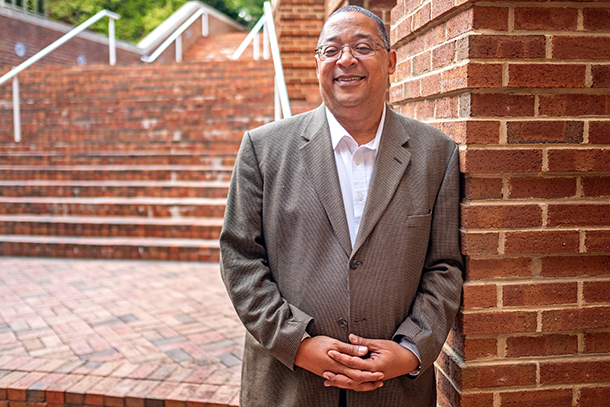Veteran university administrator Winston B. Crisp has been named USC vice president for student affairs, USC President Carol L. Folt announced July 31.
An expert in student development, Crisp formerly served as vice chancellor for student affairs at the University of North Carolina at Chapel Hill. He will join USC on Aug. 16.
“I am excited that Winston will be bringing his expertise and enthusiasm to USC,” Folt said. “Our students are sure to benefit from his vision for campus life and his deeply caring approach to student affairs. He is a compassionate and creative leader and always places students first.”
Crisp will oversee a USC Student Affairs staff of more than 300 employees who serve about 20,000 undergraduate and 27,500 graduate and professional students. The division is responsible for overseeing everything from student services to recreational sports, as well as the university’s nearly 1,000 student organizations. Its revitalized residential college program extends the learning experience beyond the classroom for first-year undergraduates by building strong connections with residential assistants and faculty.
First-generation student turned administrator
Crisp said his approach to student support and services was greatly shaped by his experience as part of the first generation in his family to attend college. USC emphasizes increasing access to higher education for first-generation students. About one in six USC students has parents who didn’t go to college.
“I owe everything — my entire career and everything I’ve been able to accomplish — to the fact that I’ve been able to access higher education when nobody else in my family had beforehand,” he said.
Student affairs staff strive to support students as they figure out the path to their future, he said. The team’s role is to make students feel welcome and keep them safe and healthy. At UNC-Chapel Hill, Crisp worked tirelessly to create a sense of belonging among students and to give them tools to succeed at the university and in life.
“Every single student that comes to the campus — without regard to what adjective you can put in front them — is supposed to have the same opportunity to figure out their dream, create a vision for themselves and to learn and grow as much any other student,” he said.
Emphasizing the need for healthy, happy students at USC
He also focused on well-being. As the nation’s universities grapple with growing mental health issues among their students, Crisp led a mental health task force that assessed the scope of needs for UNC-Chapel Hill students and provided important recommendations on new policies and programs. Today’s students, he said, face unprecedented levels of stress, and he expects to continue to emphasize mental well-being at USC.
“If students are not healthy, if students are not able to focus, then what they’re here for — which is to learn in and out of the classroom — is not going to happen effectively,” he said.
At UNC-Chapel Hill, Crisp was known for his close relationship with students. He often provided pizza during study breaks and helped new students settle in. He also achieved a following among students on Twitter using the handle @ViceCrispy.
“I got a lot of attention for that Twitter handle,” he said.
In addition to his work in North Carolina, Crisp has advised other universities on student affairs issues. In summer 2007, for example, while Crisp was associate dean for student services at UNC-Chapel Hill, he served as a volunteer on loan to Virginia Tech in the wake of its mass shooting.
Crisp earned his undergraduate degree at Johnson C. Smith University in Charlotte, N.C., and his law degree at UNC-Chapel Hill. He then joined the law school as its first assistant dean for student affairs and first associate dean for student services.
He said he believes USC is ready to create a new chapter for itself and for higher education as a whole.
“I come in with no expectations other than that this is a brilliant community of brilliant people that is poised to do tremendous things,” he said. “I hope that my talent and experience will be a fit that will help the university in terms of where it’s going, and that it will help students experience USC in the way that they dream about.”
— David Medzerian


